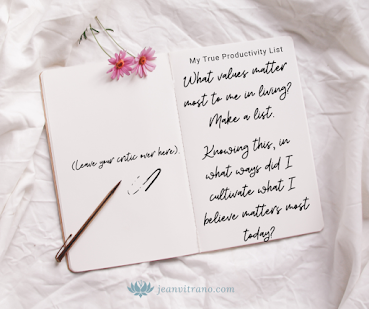On Friday, I had one of those moments that will forever stay imprinted on my brain. I had just driven 3 hours to pick up my daughter from a two-week Appalachian Trail hiking trip. She had never done something like this and no cell phones were allowed (yay!) so I had no idea how the trip went. She's also a teenager, which means I have low expectations for the kind of hellos and goodbyes we might receive. I parked the car at the high school pick up spot and started to walk across the parking lot searching for which group she might be clumped together with, when suddenly I see her running toward me across the field of grass with her arms open and a huge smile on her face. I got the biggest hug I think I ever received from her. She is NOT a touchy feely person. I'm not sure there is a better feeling than the one I experienced in that moment. Since then, every time I revisit the moment, a huge smile beams across my face.
As we drove home, once we exhausted what there was to know about the trip and what she had missed at home (not much), I found myself noticing the surprise I felt at being loved and wondering why being loved continues to surprise me. This is not new. I seem to forget or not fully believe that I am loved. For me, it takes a lot of self-work to trust it. Even here, with my own daughter, I saw just how vulnerable my faith in being lovable is. I know that may sound sad. But after decades of inner looking, I know why it's there and so it doesn't feel so sad because I know it's not "true," just something that needs reinforcement. It also doesn't sadden me because I know that this is not only my experience, but many others also experience this slippery relationship to feeling anchored in love. I do the best I can to not let it get in the way of my close relationships because it is such a drag to love someone and have them not trust in it.
So what helps me to trust in love? It takes the steady presence of someone. People who repeatedly come close in one moment and go away in another, for no obvious reason, are not great matches for me. That's what I need from "the other," but then there is what I need from myself which is my own love. It's been a slow process, this learning how to love myself, but I do now. Of course I have my moments where my inner critic gets too loud, but for the most part, I look in the mirror and I like who I see. How could I possibly trust in the love of another if I didn't have my own love? How could I love another and let them be free if I didn't have my own love?
I used to think that learning to love myself was the only key needed. I now understand that we need two. We need our own deep affection and we need the steadiness of someone else, especially if it felt unknowable as a child (for whatever reason that may be). In my 20's, I remember one of my first therapists saying I needed to learn to love myself. I knew she was right and I found it frustrating because I didn't understand how to do that. It didn't come overnight and I now understand that it's a lifelong process of watering those seeds.
My invitation for this week is to practice anchoring in love. What does that mean? Here are some practices that help me:
- I thank my body regularly for all it does for me.
- I let myself pause and rest before I get to the place of "too much."
- I take a moment to honor the work and effort I put into something so that I don't roll onto the next thing without saying, "thanks."
- I look into the mirror at my face every night and see the beauty of a vulnerable human being and I smile at her. I see the young girl in myself and my heart softens toward her.
- I remind myself to stay connected to those I love. It takes conscious doing and opening.
- When I doubt love, I stop and ask, "is it true?" I wait for my higher self to respond. She tends to see more clearly.
- I remember that I am part of a giant web of interconnected life. I am more than this body. This person who I identify as "me" is not separate from anything or anyone and, with that understanding, I love more easily because there is not much to be afraid of if I am part of it all.
- I remember that to love is a choice and there is nothing to lose when it is given freely. At the same time, I don't bother trying to love someone who gives and retracts their love often. I can still show love and care without incurring the pain of not knowing what I will get or in the hope that "this time they will stay."
You may have more ways of anchoring in love and I welcome you to share them with me. If you struggle with it, reach out, and we can see what would help to make the love you have stick.
🌻
Jean
%20copy.png)
.png)

